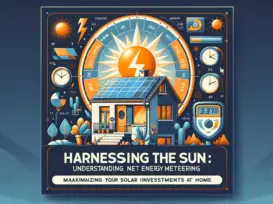Grus Home Energy - Utility Bill Savings
Maximize Your Savings: Innovative Strategies for Reducing Utility Bills Efficiently
Maximize Your Savings: Innovative Strategies for Reducing Utility Bills Efficiently
As homeowners or renters, one of the recurring expenses that we face monthly is the dreaded utility bill. It’s an area where a little bit of knowledge and effort can lead to significant savings over time. With the rise in energy costs and an increased focus on sustainability, finding innovative strategies to reduce utility bills has never been more critical. Here are several approaches to help you cut costs while maintaining a comfortable and eco-friendly home.
Firstly, it’s essential to understand your current utility usage. Look at your bills from the past few months to determine where you use the most energy or water. This will give you a clear starting point for making reductions. Many utility companies also provide usage breakdowns and comparisons with similar households, which can highlight areas for improvement.
One of the most effective strategies for saving on your utility bill is to upgrade to energy-efficient appliances. Look for products with the Energy Star label, as these appliances meet strict energy efficiency guidelines set by the U.S. Environmental Protection Agency. While the upfront cost can be higher, the savings in utility bills can be substantial over time.
Another area of focus should be your home’s insulation. Proper insulation keeps your home warm during the winter and cool during the summer, reducing the need for heating and air conditioning. Check for leaks around windows, doors, and other areas where air might escape and seal them with weatherstripping or caulking. Insulating your attic and walls can also lead to significant savings.
Next, consider the benefits of installing a programmable or smart thermostat. These devices allow you to set specific temperatures for different times of the day and automatically adjust the heating or cooling when you’re not home. By optimizing your heating and cooling schedules, you can save up to 10% a year on your utility bills.
Water usage is another area where you can cut costs. Installing low-flow fixtures for showers, faucets, and toilets can drastically reduce your water consumption. Additionally, fixing leaks promptly and using water-efficient appliances like dishwashers and washing machines will contribute to lower water bills.
Switching to LED lighting is another simple yet effective way to reduce your energy bill. LEDs use at least 75% less energy and last 25 times longer than incandescent lighting. Replacing your most used light fixtures with LEDs can result in immediate savings.
For those looking to make a more significant impact, consider renewable energy options like solar panels. Many states offer incentives and rebates for solar panel installation, which can offset the initial costs. Plus, you may be able to sell excess energy back to the grid, resulting in additional savings.
Additionally, a practice as straightforward as unplugging electronics when they’re not in use can prevent unnecessary energy consumption. Many devices continue to draw power even when turned off, a phenomenon known as “phantom load.” Using power strips for clusters of electronics makes it easier to turn everything off at once.
Lastly, encourage all household members to adopt energy-saving habits. Simple actions like turning off lights when leaving a room, taking shorter showers, and doing laundry with cold water can collectively make a noticeable difference in your utility bills.
In conclusion, there are numerous innovative strategies for reducing utility bills. From investing in energy-efficient appliances and improving home insulation to installing smart thermostats and embracing renewable energy, every action contributes to cost savings and environmental stewardship. It’s about making informed decisions and routine changes that together lead to a significant reduction in monthly expenses.
©2025 All Rights Reserved. Grus IoT Co.,Ltd.
